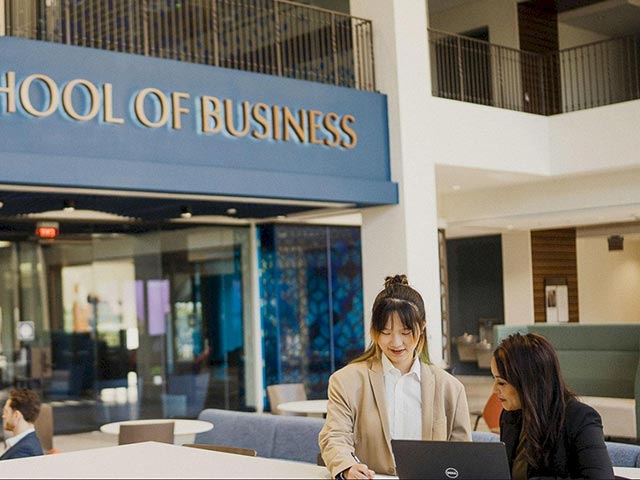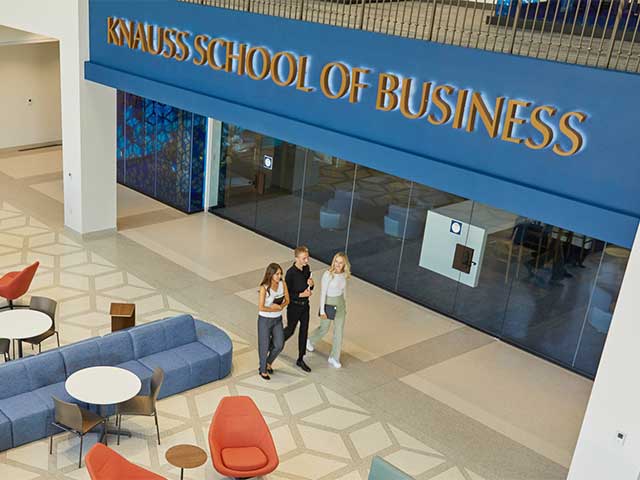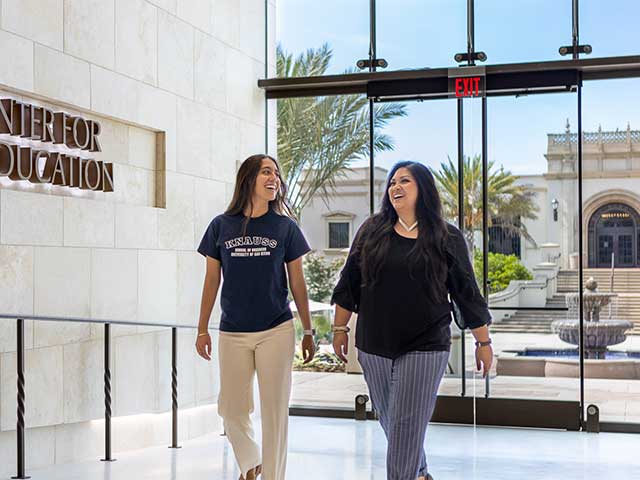Sustainable Supply Chain Management: Key Strategies for Ethical Procurement

Global business is moving away from the harmful practices of the past, and instead, driving a worldwide movement toward sustainability and ethical operations. With a growing emphasis on ethical considerations across management strategies, systems from the top down are changing to be more inclusive, efficient, sustainable and equitable.
Consumers and corporations alike are seeking a new kind of business, one that fully embraces ethical procurement practices. And to make real change, we must target the nervous system of business: the supply chain.
Audio produced by Hubspot using AI narration.
Defining Sustainable Supply Chain Management
Sustainable supply chain management integrates environmentally and financially viable practices into the entire supply chain lifecycle, from product design to end-of-life considerations. By incorporating sustainable practices into sourcing, production and logistics processes, companies can improve environmental and social outcomes. This approach is not only financially viable, but also represents a commitment to responsible business operations that benefit both the company and the community.
Benefits of Sustainability in Supply Chain Management
Embracing sustainability in supply chain management benefits companies in both their external impact and their internal processes. Listed below are a few ways sustainable sourcing can transform businesses from the ground up:
- Reduced environmental impact: Sustainable practices throughout the supply chain minimize environmental impact of business operations, such as reducing carbon emissions and waste generation.
- Strengthen brand reputation: Embracing sustainability not only resonates with environmentally conscious consumers but also enhances a company's image as a socially responsible and ethical entity within the market.
- Meet regulatory requirements: By adhering to sustainability standards and regulations, businesses demonstrate compliance with environmental laws and industry standards, fostering trust and credibility with stakeholders.
- Increased competitiveness in the market: A business with a sustainable supply chain not only attracts eco-conscious consumers but also becomes an appealing partner for other companies seeking to align with environmentally responsible values.
- Streamlined processes: Sustainability initiatives often lead to more efficient and streamlined operations, optimizing resource use, reducing costs and improving overall performance within the supply chain.
- Several leading global companies have streamlined their supply chains for better sustainability outcomes, making critical changes along each tier of their networks to encourage ethical procurement.
The Intersection of Sustainability and Ethical Procurement
Ethical procurement is the process of ensuring the goods and services purchased are obtained responsibly and sustainably, considering environmental, social and ethical factors. By integrating sustainability principles into ethical procurement practices, organizations can ensure that their supply chains operate in a manner that is both environmentally responsible and socially equitable.
Importance of Ethics in Procurement
Ethical procurement practices can mitigate risks, enhance brand reputation and contribute to the global goal of sustainable development. Ethics & Compliance Initiative (ECI) notes that ethical procurement is crucial for building trust with stakeholders and maintaining compliance with international standards.
Strategies for Ethical Procurement
When considering MBA focus tracks that align with doing business for good, prospective students should analyze the program’s goals and objectives. Programs that focus on ethical decision-making, community engagement and sustainable practices are more likely to offer strong, practical resources for developing your gifts as a leader.
Employ Fair Labor Practices
Ethical procurement begins with ensuring that workers across the supply chain are guaranteed decent working conditions. The definition of decent work includes fair treatment, safe working conditions and fair wages for all employees.
One of the greatest barriers to ethics in procurement is effectively cascading proper practices to lower-tier suppliers. Strategies like audits, certifications, and supplier assessments can help business enforce fair labor practices across all suppliers.
Prioritize Sustainable Sourcing
Sustainable sourcing involves the careful selection of supplies and materials that are produced in an environmentally sustainable and socially responsible manner. This approach includes developing partnerships with suppliers who adhere to recognized sustainability standards and certifications, such as FSC (Forest Stewardship Council) and MSC (Marine Stewardship Council).
Minimize Environmental Impact
Supply chain management plays a major part in a business’ environmental impact. Companies demonstrate commitment to environmental sustainability by implementing practices like reducing waste, optimizing transportation and choosing eco-friendly materials.
For instance, IKEA has successfully minimized its environmental impact by sourcing close to 50 percent of its wood from sustainable foresters and ensuring that 100 percent of its cotton is from farms meeting Better Cotton standards. This not only leads to operational savings but also enhances the company’s sustainability profiles.
Focus on Risk Management in Supply Chain
Disruptions within the supply chain can not only jeopardize business performance but also cause damage to a company's reputation and financial standing, posing a potential threat to the organization's sustainability and ethical sourcing. Risk management means taking steps to identify, assess and mitigate risks within a company’s supply chains.
Predictive technologies and responsive frameworks help enhance visibility, ensure compliance and increase responsiveness across the supply chain, allowing companies to maintain sustainability and ethics initiatives in their supply chain operations.
Lead in Supply Chain Sustainability With a Master’s in Supply Chain Management
Sustainable supply chain management and ethical procurement practices are essential for businesses in every field. Pursuing sustainability can help companies minimize their environmental impact, promote social responsibility and improve their overall performance.
At USD’s Knauss School of Business, we are committed to empowering our students with the education and leadership skills necessary to advance sustainable supply chain practices in the workforce. Our Master of Science in Supply Chain Management is designed to educate students about the role of sustainable supply chain practices, while also meeting the needs of society and promoting better outcomes for everyone.
Build on your current experience and excel in supply chain strategy and design, strategic cost management negotiations and more at our transformative Supply Chain Management Institute, which provides a conducive environment for faculty, students and industry partners to collaborate and drive thought leadership, apply research and create practical solutions for the greater supply chain profession.
Interested in learning more about careers in supply chain management? Download our career guide!
Download the MSSCM Guide | Request More Information | Explore the MSSCM Program Page | Apply





